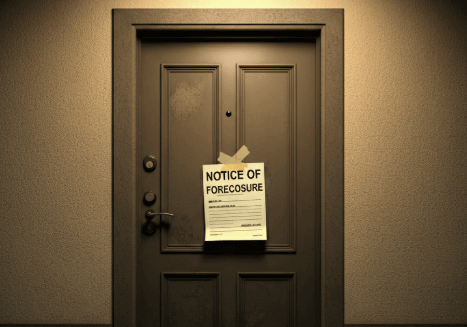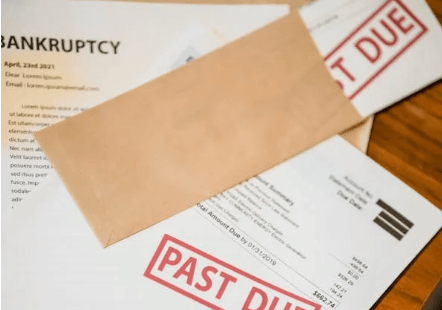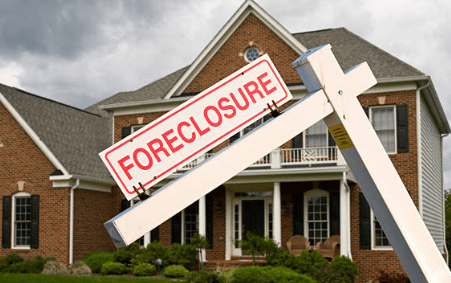In the sunny state of Florida, foreclosure is one that many homeowners may find themselves pondering, specifically wondering, “How long does it take to foreclose on a house?” This pivotal question is not only critical for those facing financial difficulties but also for investors and real estate professionals navigating the tumultuous waters of the housing market. In this blog, we’ll dive deep into understanding the timeline and processes involved in the foreclosure procedure in Florida. We aim to highlight “How long does it take to foreclose” on a property in this state, providing clarity and insight for those at this crossroads. Whether you’re a homeowner seeking information during challenging times or a professional looking to guide your clients, this guide will provide you with the vital insights required to navigate the intricacies of foreclosure in Florida.
Steve Daria and Joleigh, seasoned real estate investors, often emphasize that the timeline to foreclose on a house in Florida can vary significantly. They point out that understanding “How Long Does it Take to Foreclose” is crucial for investors looking to capitalize on opportunities in the Sunshine State. Generally, the process can take a few months to over a year, depending on the court system’s backlog and the case’s specifics.
What is a Foreclosure in Florida?
Before we discuss how long does it take to foreclose, it’s vital to establish a baseline understanding.
Foreclosure is when a lender can take over the property used to secure a mortgage loan if the mortgagor, or the homeowner, defaults on mortgage payments.
Florida is a ‘judicial foreclosure’ state, meaning all foreclosures must be processed through the courts.
This legal requirement significantly impacts the foreclosure timeline and the parties’ rights.

Understanding the Timeline: “How Long Does it Take to Foreclose on a house in Florida?”
Grasping the Timeline for foreclosure in Florida is crucial for homeowners facing the threat and investors looking to purchase foreclosed properties.
This section provides a detailed overview of the steps and time frames involved in understanding how long does it take to foreclose on a house.
The Initial Default
You’re technically in default after you’ve missed your first mortgage payment. However, the foreclosure process doesn’t begin immediately.
Usually, lenders or servicing companies will reach out to the homeowner to discuss the missed payments, work out a payment plan, or offer various foreclosure prevention alternatives.
The Lis Pendens Filing
In Florida, for a foreclosure to move forward, a lender files a ‘Lis Pendens’ with the court. This is a public notice of a pending lawsuit served to the borrower, signaling that the foreclosure process is formally beginning.
A Lis Pendens is typically filed 90 days after a borrower misses their first payment.
The Legal Complaint
After the Lis Pendens is filed, the lender’s attorney files a complaint with the court that begins the official foreclosure process.
The borrower should receive a summons and complaint within 30 days of filing. At this point, the borrower has limited time to respond — usually 20 to 30 days.
The Default Judgment
The lender may request a default judgment if the borrower does not respond to the complaint. This usually lasts 60 to 90 days from the initial complaint filing. The property becomes officially in foreclosure when the court grants a default judgment.
The Foreclosure Sale Date
With the default judgment, the lender can schedule a foreclosure sale — essentially an auction where the home is sold to the highest bidder.
In Florida, this sale date is typically set 20 to 35 days after the judgment.
The Foreclosure Sale
If the lender sells the property at foreclosure, they will file a sale certificate with the court. The certificate will usually be filed within ten days of the sale, though the actual property transfer may be delayed if the borrower raises objections.
The Final Step: Eviction
If the property is sold at foreclosure, the new owner must get a writ of possession from the court.
This allows the new owner to begin the eviction process, which can take several more weeks or months, depending on state and local laws.
Factors That Can Extend the Timeline
While the above timeline provides a general order and estimated time frames, the Florida foreclosure process can be prolonged due to several factors:
Loan Modify Website
A borrower and lender may agree to a loan modification, extending the process by several months or halting it altogether.
Bankruptcy Filing
If a borrower files for bankruptcy, the foreclosure process will be paused until further order of the bankruptcy court.

Defense Strategies
Borrowers can file legal defenses, which, if successful, can either delay or stop the foreclosure process altogether.
Redemption Rights
Florida provides a right of redemption, allowing the homeowner to repurchase the home within a specific time frame after a foreclosure sale by paying the sale price plus costs.
Homeowner Rights and Foreclosure Defenses in Florida
In Florida, homeowners navigating foreclosure proceedings have specific rights and potential defenses that can significantly impact the process. This section elucidates these critical aspects, delivering guidance on how homeowners can assert their rights and possibly delay or avoid foreclosure.
Legal Technicalities
Meticulously reviewing your mortgage documents is crucial in Florida. Errors or omissions in the foreclosure process can be grounds for dismissal.
Procedural Missteps
Familiarize yourself with the entire process to catch any irregularities that could invalidate a foreclosure proceeding.
Violation of Servicemembers Civil Relief Act (SCRA)
Lenders must verify the military status of borrowers who default, as foreclosing on active-duty service members without due process is prohibited.
Fraudulent or Predatory Lending Practices
If you believe your mortgage was obtained through fraudulent or predatory practices, you may have legal recourse to challenge the foreclosure.
The Post-Foreclosure Stage
Once a foreclosure is complete, the lender will usually evict the former homeowner. The home will eventually be resold, and any remaining judgment amounts will be collected. Understanding this stage is essential for neighborhood residents and potential buyers.
Communication is Key
Open lines of communication with your lender can lead to various options to retain your home or lessen the damage to your credit score.
Know Your Rights
Understand Florida’s specific foreclosure laws and your legal rights. Foreclosure processes and laws are in place to protect you.
Seek Legal Counsel
A foreclosure attorney can explain the process, evaluate your situation, and provide various options under Florida law.
Investor’s View: Opportunities Amidst Foreclosure
Investors in Florida can find lucrative opportunities in the post-foreclosure market. With an understanding of the foreclosure process, Florida’s real estate laws, and market trends, strategic investing can lead to substantial ROI.
Due Diligence
Conduct extensive due diligence on properties of interest. This includes understanding the property’s title, liens, encumbrances, and the potential for rehabilitation and resale.
Auction Strategy
To excel at foreclosure auctions, meticulous research and due diligence are essential. Begin by understanding the properties on offer, their market value, and potential profitability.
Set an apparent maximum bid, factoring in repair costs and projected returns. Arrive early, prepared with all necessary documentation and financing arrangements. During the auction, maintain discipline, sticking to your predetermined bid to avoid overpaying.
Familiarize yourself with financing requirements and property inspections to make informed decisions. By following these steps, you can navigate foreclosure auctions confidently, maximizing your chances of securing a profitable investment while mitigating risks.
Post-Foreclosure Transactions
Understand how to approach banks or new property owners to acquire post-foreclosure properties.
FAQ for Buyers and Sellers
In this section, we address the most common queries from buyers and sellers regarding the foreclosure process in Florida:
For Buyers
Buyers can often find bargains in the foreclosure market but must carefully consider the risks and implications.
Always conduct a thorough inspection, secure financing in advance, and be prepared for a competitive bidding environment.
For Sellers
If facing foreclosure, consider selling the property before the foreclosure process is complete.
This can lead to a more significant financial outcome and prevent the extended adverse effects on your credit.
Conclusion
Navigating the foreclosure process in Florida is no small feat, whether you’re a homeowner fighting to keep your property, a potential buyer looking for opportunities, or an investor seeking a new venture. By understanding the timeline, your rights, and possible strategies, you can make informed decisions and turn a difficult situation into a more favorable one. This is a complex process, and seeking professional advice is always recommended. The labyrinth of legalities and possible defenses is best tackled with a trusted professional by your side. Engaging with the resources at hand can be the difference between an ordeal and an opportunity.

